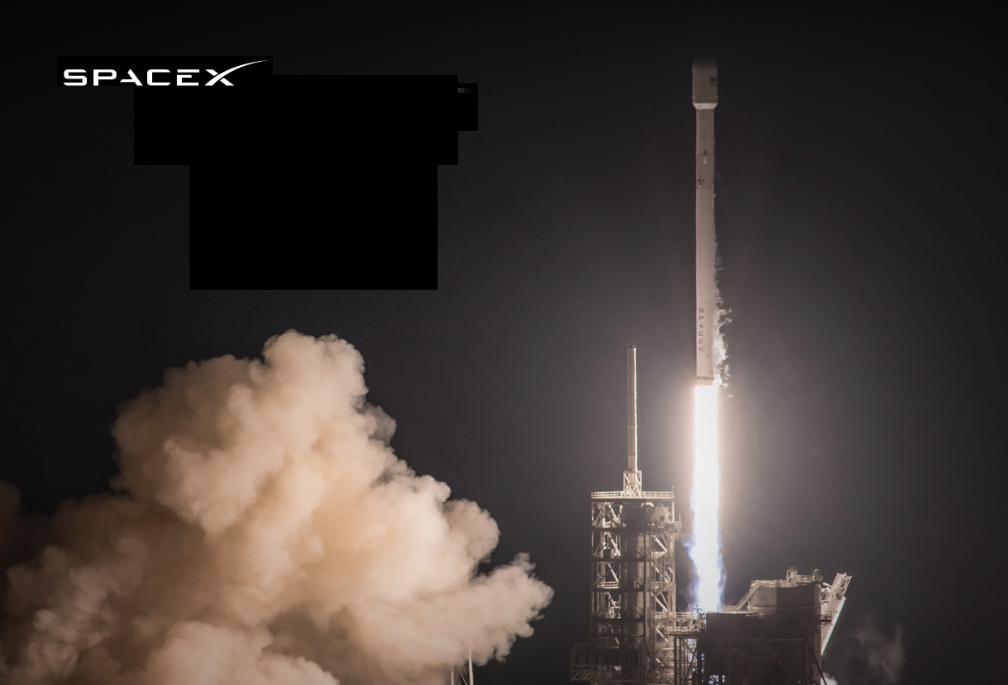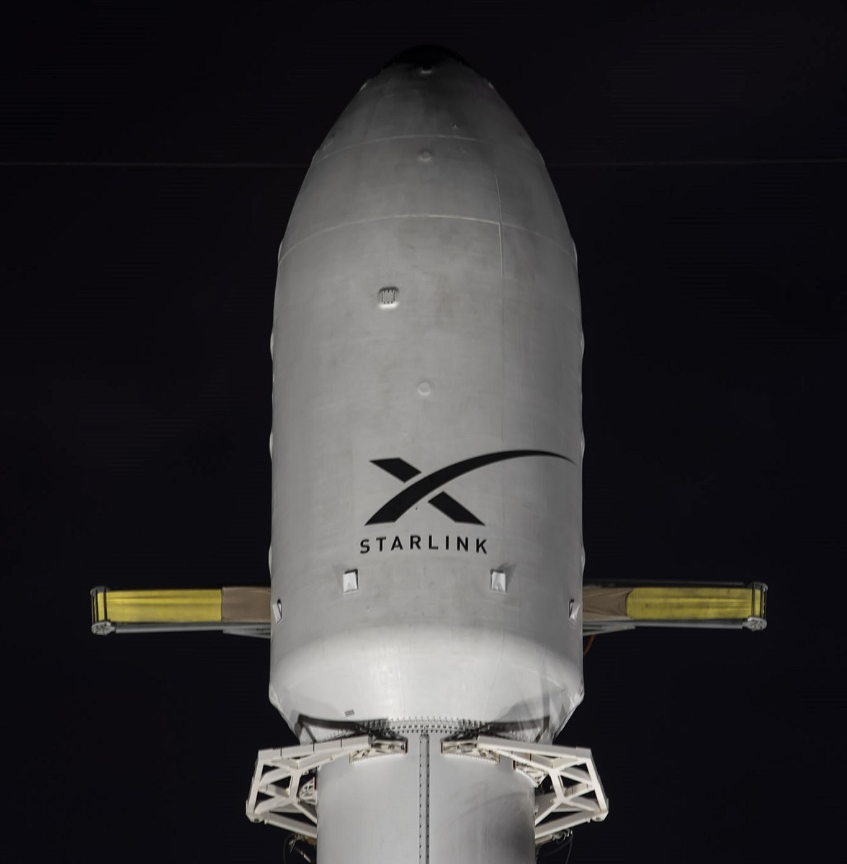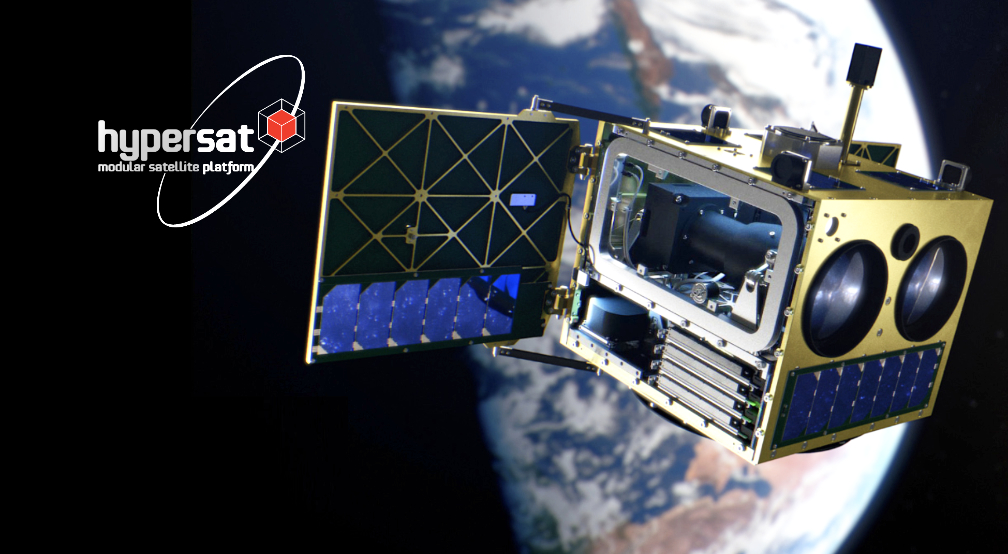
Elon Musk’s SpaceX is scheduled to launch 52 of its Starlink craft into circular orbits today (December 17th). This is an unusual move from Musk’s team — this launch is designed to fill gaps in the constellation’s existing coverage.

The launch will take place from SpaceX’s facility at the Vandenberg Air Force Base in California (at 09.26 am UTC). Specialist observer T S Kelso at CelesTrak said that the satellites will be deployed 15 minutes later at 10.01 UTC.
The circular orbits will be about 550 kms (340 miles) altitude once the satellites have raised themselves after launch. The satellites have been described as Versions 1.5.
Separately, Musk has been speaking about his plans for the massive Starship and – according to an interview with Time magazine – said that he would be surprised “if we’re not landing on Mars within five years”.

OneWeb is currently building its satellites at a joint-venture facility it owns with Airbus Space & Defense in Florida. It recently emerged that it is planning to build its second-generation satellites in the UK. Airbus has existing UK manufacturing facilities in Portsmouth and Stevenage. OneWeb has said that the company has no plans to close its Florida plant. The new UK facility will come online in about 2025 according to Chris McLaughlin, OneWeb’s chief of regulatory affairs.
Massimiliano Ladovaz, CTO at OneWeb, clarified Mr. McLaughin’s comments saying that OneWeb had issued an industry-wide Request for Information in regard to its Generation 2.0 versions. “We are still evaluating exactly how the entire supply chain for Gen 2 will be deployed,” Ladovaz said. “Clearly, there will be an important presence in the UK, we’re not denying that. But we’re going to look at the best in class everywhere.”
There is considerable demand for the manufacture of smallish, LEO smallsats and an apparently enthusiastic number of billionaires and countries want their own satellite constellations.
Virgin Orbit Invests In Hypersat, SatRevolution

Sir Richard Branson-backed Virgin Orbit has taken a 17.5 per cent stake in EO image company Hypersat, as well as investing in a funding round for Poland-based SatRevolution.

Hypersat is already a client of Virgin Orbit and used Virgin’s rocket plane to launch six of its Hyperspectral satellites.
Poland’s SatRevolution is busy raising cash for its smallsats and, again, was an early client of Virgin Orbit’s LauncherOne system.

“Our partnership with Virgin Orbit will help us to develop critical relationships with existing and new customers and to give us speed, momentum and the resilience to deliver over the long term,” said Grzegorz Zwolinski, co-founder and CEO of SatRev.
Intelsat Creditor Settlements Approved

Judge Keith Phillips on December 16th approved Intelsat’s plan for the settlement of much of its indebtedness prior to its May 2020 Chapter 11 bankruptcy.
The bottom line is that the agreement reduces Intelsat’s old debts of about $16 billion by more than half thanks to the acceptance of the company’s new Plan of Reorganization.
The court ruling stated, “Settlement is a good-faith compromise and settlement of claims, interests, causes of action, and controversies among the Debtors, the First Lien Groups, the Jackson Crossover Group and the Committee (collectively, the “Settlement Parties”). Such compromise and settlement are the product of extensive arm’s-length, good faith negotiations that resulted in the Settlement, which represents a fair, equitable, and reasonable compromise.”
The Settlement Order and its terms are binding and frees up fresh financing worth almost $8 billion in post-exit financing.
The approved plan follows on from a series of Motions before the court concerning Intelsat’s Exit from bankruptcy and how the company will be structured post-bankruptcy. As the court said, “Certain objections resolved and remaining objections overruled.”
Judge Phillips said he would approve a revised version of the bankruptcy plan accounting for the ad hoc convertible group’s agreement to the settlement, as well as other changes, in a much-delayed hearing December 16th as last-minute negotiations were hammered out. The US Trustee objected to aspects of the company’s management incentive plan, but that was overruled.
Intelsat agreed to give the ad hoc noteholders an additional $25 million in cash, as well as three board of director appointments, in order to withdraw their objections to the plan.
Some elements were already clear. For example, Intelsat SA will (in its words, and as regards the Luxembourg portion of the business) “fire two levels of boards below Intelsat SA.” This will have the effect of “breaking the tax unity” for the Luxembourg-registered businesses. They, in turn, can then “monetize the Net Operating Losses” which have built up in Luxembourg.
Intelsat, in a Statement from CEO Stephen Spengler, said, “Today’s Plan confirmation is a key milestone in Intelsat’s transformation. We have achieved all of the goals we identified at the outset of the process, including a substantial reduction of our legacy debt burden. Throughout the process, we have driven our business forward at full speed – launching new satellites, advancing the accelerated clearing of C-band spectrum, acquiring Gogo’s commercial aviation business, progressing our next generation network and service strategy, and serving customers every day with the excellence for which we are known. We greatly appreciate the dedication and contributions of our employees, the support of our valued customers, vendors, and other partners, and the collaboration with our financial stakeholders as we pave the way for future innovation and growth.
“With a strengthened balance sheet, strong operating model, and unparalleled global orbital and spectrum rights, scale, and partnerships, we will be better positioned to advance our strategic objectives, accelerate our growth trajectory, and fuel the success of our customers and other key stakeholders. Our goals include building the world’s first global 5G satellite-based, software-defined, unified network,” Spengler continued. “For nearly 60 years, Intelsat has been respected for innovation, reliability, sector leadership, and high-performing services and support. We look forward to maintaining our leading position in the satellite communications industry for decades to come,” added Spengler, who is set to leave Intelsat once the bankruptcy wraps.
Under the terms of the Plan and with exit financing commitments already obtained, Intelsat is set to emerge as a private company, with the support of new equity owners, access to $7.875 billion in capital as well as a significantly deleveraged balance sheet. The Company is well positioned to continue to reduce its debt upon receipt of $4.87 billion of accelerated relocation payments in connection with the C-band spectrum clearing project, with $1.2 billion of the total already approved by the Federal Communications Commission for anticipated receipt in January.

